Mitch Albom's For One More Day
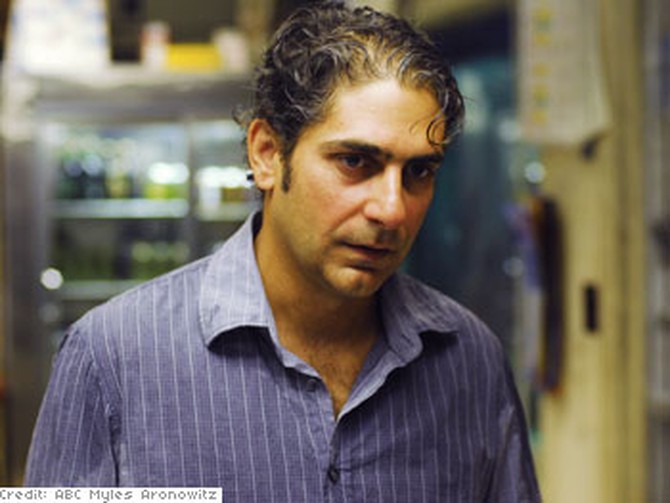
If you could spend one more day with someone you have loved and lost, what would you say? Mitch Albom, author of Tuesdays with Morrie and The Five People You Meet in Heaven, poses that powerful question in his best-selling novel For One More Day. The story revolves around Chick Benetto, a washed up salesman who returns to his small hometown with plans to take his own life. Magically, his departed mother walks back into his life—and he is granted one more day with her.
"For One More Day is a story about forgiveness, it's about redemption, and ultimately love between a mother and her son," Oprah says. "When I read the book, I was so moved by its message, I decided to make it a special Oprah Winfrey Presents television movie."
"For One More Day is a story about forgiveness, it's about redemption, and ultimately love between a mother and her son," Oprah says. "When I read the book, I was so moved by its message, I decided to make it a special Oprah Winfrey Presents television movie."
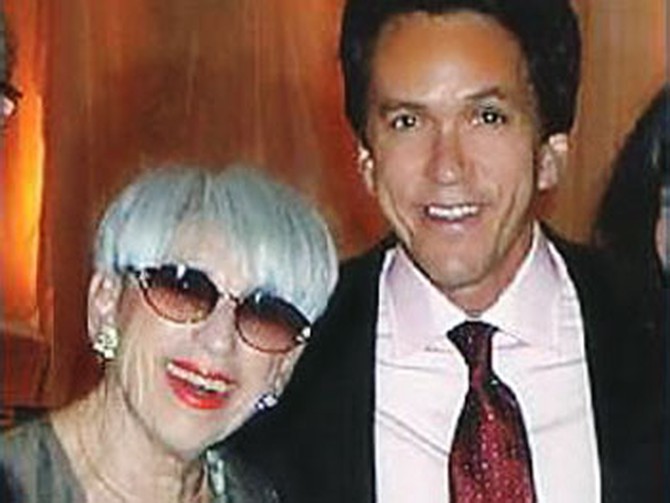
Mitch says he was in the middle of writing another book when he decided to start writing For One More Day. The idea began after a phone call with his mom. "When I hung up the phone I was hit with this wave of sadness—and I thought, what's it going to be like when I'm not able to make that phone call? When I reach for that phone, and I'm going have to take my hand back because she's not there?"
Mitch began thinking about what he would say to his mom if he knew that they only had one more day together. "I was depressed over something that hadn't happened yet and I realized, wow, if you feel that strongly about it now, maybe this should be what you're writing. And I literally stopped that other book on whatever page it was on and began For One More Day that day."
The book became a tribute to his mother and Mitch is thankful she was able to read it. "I wrote Tuesdays with Morrie, but [Morrie] never read a word of it. I wrote The Five People You Meet In Heaven, but my Uncle Eddie never read a word of it," Mitch says. "I really wanted to hand this to my mother while she was still here and say, 'Here, this is something you should read.'"
Mitch began thinking about what he would say to his mom if he knew that they only had one more day together. "I was depressed over something that hadn't happened yet and I realized, wow, if you feel that strongly about it now, maybe this should be what you're writing. And I literally stopped that other book on whatever page it was on and began For One More Day that day."
The book became a tribute to his mother and Mitch is thankful she was able to read it. "I wrote Tuesdays with Morrie, but [Morrie] never read a word of it. I wrote The Five People You Meet In Heaven, but my Uncle Eddie never read a word of it," Mitch says. "I really wanted to hand this to my mother while she was still here and say, 'Here, this is something you should read.'"
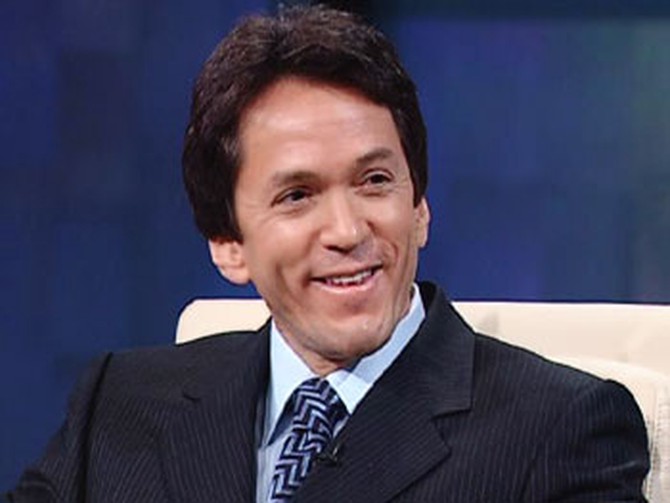
Mitch's mother influenced the characters in For One More Day in many ways. "My mom, like a lot of people of her generation, she had big dreams and plans. She was going to be a doctor. She was going to be the first person in her family to go to college—and her father died when she was 16 years old," Mitch says. From that point forward, Mitch says that taking care of the family became her number one priority. "I remember having a conversation with her once, saying 'I've got my career and all this and it's too bad—so sad that you didn't get a chance to do all these things.' And she said to me, 'I did do what I wanted to do. I was a mother.'" Mitch says he was floored by his mother's response and wrote the conversation into a scene in For One More Day.
The life lessons Mitch has learned from his mother are also sprinkled throughout, including the pivotal moment when Mitch's mother influenced him to become a writer. In a scene taken straight from Mitch's real life, a librarian tells Chick that 20,000 Leagues Under the Sea is too difficult for him. His furious mother storms into library to confront the librarian. "Never tell a child that something is too hard for them," she says.
Mitch says his mother ended up getting the book for him. "We went home and I remember when I sat and tried to read it, the truth was, it was really hard," he says. "But because reading was obviously so important to her, I finished the book because I felt I owed it to her. And I always say that scene and that moment in my life was the day I became a writer, because you first become a writer by learning to love reading."
The life lessons Mitch has learned from his mother are also sprinkled throughout, including the pivotal moment when Mitch's mother influenced him to become a writer. In a scene taken straight from Mitch's real life, a librarian tells Chick that 20,000 Leagues Under the Sea is too difficult for him. His furious mother storms into library to confront the librarian. "Never tell a child that something is too hard for them," she says.
Mitch says his mother ended up getting the book for him. "We went home and I remember when I sat and tried to read it, the truth was, it was really hard," he says. "But because reading was obviously so important to her, I finished the book because I felt I owed it to her. And I always say that scene and that moment in my life was the day I became a writer, because you first become a writer by learning to love reading."
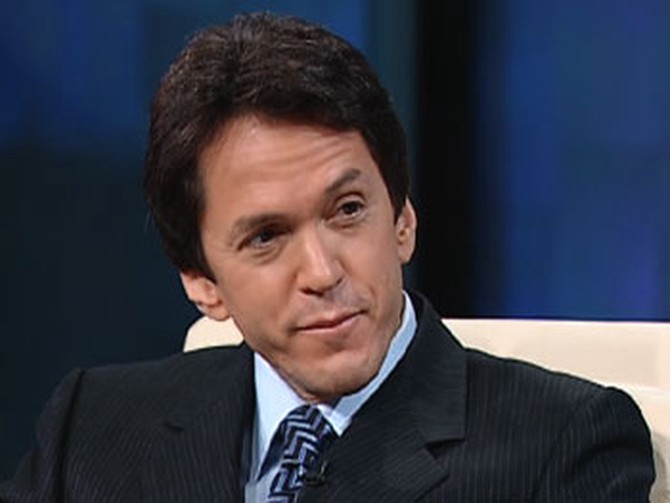
When it comes to the words people wish they could say to someone they have lost, Mitch has found that most answers are the same. "Well, I would say a hundred percent say they want to tell somebody that they love them," he says.
Mitch also says a missed apology seems to be a universal regret. "You always think you're going to have more time to fix it. You always say 'I'll go see my mother next Christmas' or 'I'll go visit the family next summer.' [Then] you get that phone call—'Come to the hospital.'—and all of a sudden those chances you thought you were going to have, you don't have."
Mitch says he thinks it is the everyday moments people miss the most. He begins For One More Day as an ordinary day—a mother cooking breakfast for her son. "Because those are the moments that everybody sort of really does want back, if you've got another day back with somebody," he says.
Mitch also says a missed apology seems to be a universal regret. "You always think you're going to have more time to fix it. You always say 'I'll go see my mother next Christmas' or 'I'll go visit the family next summer.' [Then] you get that phone call—'Come to the hospital.'—and all of a sudden those chances you thought you were going to have, you don't have."
Mitch says he thinks it is the everyday moments people miss the most. He begins For One More Day as an ordinary day—a mother cooking breakfast for her son. "Because those are the moments that everybody sort of really does want back, if you've got another day back with somebody," he says.
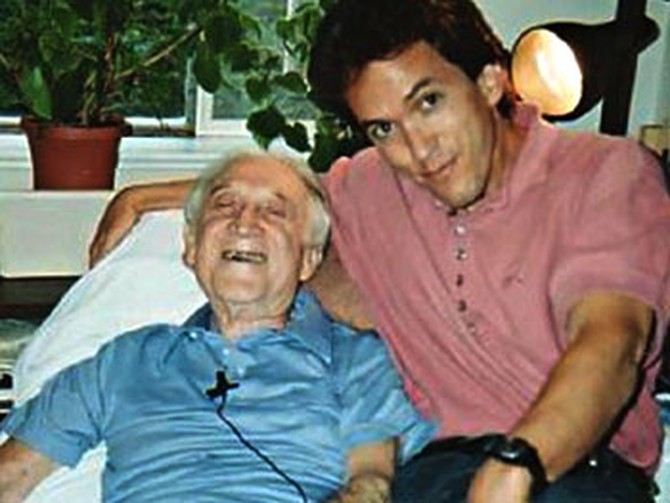
If Mitch could spend one more day with someone, he knows who he would chose—Morrie, from Tuesdays with Morrie. "I'd love to see Morrie again just to ask him about how everything has happened since then, and ask him am I doing a decent job representing him. That would be a great day."
Published 12/05/2007

